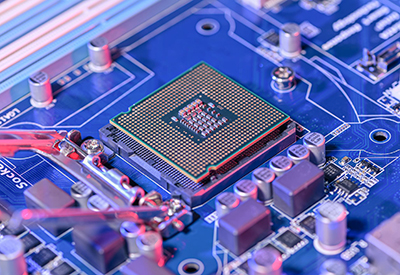NMMA reports that passage of the Bipartisan Innovation Act will secure numerous victories for marine manufacturers

June 20, 2022
The NMMA reported that before Congress adjourns for its summer recess, there are several large pieces of legislation lawmakers are looking to pass, including the Bipartisan Innovation Act, which is a key policy priority for the recreational boating industry.
Passage of the Bipartisan Innovation Act will level the playing field for marine manufacturers, and will address a number of priorities for marine manufacturers, including:
Reinstate and expand the exclusion process for Section 301 tariffs, which are currently costing marine manufacturers over $30 million in taxes;
Address the U.S. semiconductor shortage currently impacting and stalling the marine manufacturing process;
Invest in American manufacturing by boosting research and development (R&D) and allowing business to fully deduct R&D expenses in the same year they are incurred.
Published in the Orlando Sentinel, Bill Yeargin, CEO of Correct Craft, published an opinion piece highlighting the importance of the Bipartisan Innovation Act for marine manufacturers, specifically as it relates to semiconductor chips.
The piece states:
Semiconductor chips have been the brains of marine engines for years and now they are becoming the brains of the entire boat. As recreational boats and the boating lifestyle continue to incorporate more advanced and connected technologies, it is likely that boats will require upwards of 100 chips in the not-too-distant future.
Without these chips, our economy grinds to a halt. And this is not just a supply chain issue; it is a serious national security issue too.
Fortunately, the Biden administration and Congress have come together to fix the U.S. chip dependency problem by developing the Bipartisan Innovation Act, legislation which seeks to strike a compromise between the House of Representatives’ America COMPETES Act and the Senate’s U.S. Innovation and Competition Act. Specifically, the Bipartisan Innovation Act would provide billions of dollars of public and private funding to bolster domestic production of semiconductor chips.
Other smart elements in the Bipartisan Innovation Act include funding for regional innovation hubs and apprenticeship programs. The conference committee is also working to address additional global competitiveness and supply chain challenges in the legislation, including restoring the exclusion process for Section 301 tariffs, renewing the recently expired tax credit for research and development expenses, and cracking down on unfair shipping practices from foreign entities. These are critical issues for a countless number of American industries, and it behooves negotiators to incorporate these provisions in the final bill.
The op-ed may be read in its entirety with a subscription here.
For questions or additional information about the Bipartisan Innovation Act, please contact NMMA director of federal government relations, Clay Crabtree, at ccrabtree@nmma.org



























